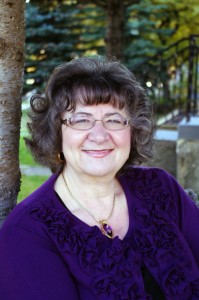Home »

KERHD board rips into IH over Invermere dialysis
The Interior Health Authority (IH) can expect another strongly worded letter from an East Kootenay government over its decision to remove the dialysis unit at the Invermere District Hospital.
District of Invermere council last month unanimously voted to send a “strongly worded letter” to IH. And the Kootenay East Regional Hospital District (KERHD) board of directors Feb. 1 made it loud and clear that they’re none too impressed with the decision or how it was arrived at by IH, concluding a lengthy discussion by unanimously agreeing to a motion made by District of Invermere Mayor and KERHD director Gerry Taft to “strongly encouraging” IH and the B.C. Renal Agency to not remove the equipment at the Invermere hospital until further study of the issue is completed.
Taft led the initial charge in the half-hour long discussion, noting that the IH said Invermere’s dialysis unit wasn’t a sustainable service to continue because there was only one nurse trained to operate it and only one patient using it.

Taft said the only reason there was one person using the Invermere dialysis, which the IH intends to move to Sparwood, is because “there was never any consistency in providing the service, so it actually meant there were a number of people in the Invermere area, and potentially the Golden area, who left the community because they were not in a position and their families were not in the position to drive them to Cranbrook three times a week, for a four-hour dialysis cycle. I’ve heard in Invermere there was actually a patient who needed to go to Trail, which is not sustainable, it is not possible, especially when you are talking about elderly people with the (physical exhaustion) and the sickness at the end of their dialysis cycle – there is no way they can drive home. So then friends and family are put in the position to transport them.”
Noting the aging of the population and citing that statistically dialysis patients tend to be in the elder spectrum, Taft suggested in the near future more people will require the service.
He also argued that home dialysis “is not as straight forward as it may sound. It’s not necessarily the most perfect situation” and if the Invermere dialysis unit was offered consistently, most people wouldn’t have opted for home treatment. And beside that, a patient must first go through a clinical process “and get stabilized, so it’s not something a person would be able to do from day one.”
The closure and removal of the dialysis “is a reflection on how it is been managed. From what I’ve heard the nurses union and other people have been trying to have additional people trained and they’ve been trying to bring up the idea where you could have a floating nurse who travels between Cranbrook and Sparwood and Invermere to provide relief.”
Taft said the IH’s management of the Invermere unit “is a self-fulfilling prophecy” in that the service system is primed to fail.
“It’s not something we’re happy about,” he said, adding, “It’s unacceptable.”
Some valley residents have had to move to Calgary or the Okanagan to get the service and the community is losing good people, Taft said.
He also pointed out that second home and timeshare owners in the valley were availing themselves to the service, “when it was operated consistently” and its presence gives the valley’s busy tourism industry a supplemental drawing card.
“Because of out-of-province medical it was potentially an income generator for IHA,” he said.
Taft said the timing of the closure was also questionable, noting it was closed soon after the lone operating nurse returned to active duty after a leave.
“So here you have the situation where you have the equipment in place, the staff person ready to go and at the very last minute a decision is made with no consultation with the patient, to us (KERHD board), to anybody – to close it permanently. And I believe the communication to that one patient was one phone call. No contact afterward in terms of support, to see how that person is doing, whether or not they can sustain three trips a week to Cranbrook… so this is a pretty serious issue.”
The patient Taft mentioned is long-time Invermere resident Kirt Sellers, who travels the 140 kms one-way to the East Kootenay Regional Hospital every Monday, Wednesday and Friday. And then returns home afterward.
“Ethically, it’s a pretty brutal kick in the balls,” he told e-KNOW in a phone conversation shortly before the KERHD board took aim at IH.
E-KNOW will be featuring Sellers’ side of the story in greater detail in another feature.
Meanwhile, the KERHD board is leaning with all its weight on the IH and their lack of communication concerning the decision has more than Taft upset.
As a result he asked the board for support to contact IH and ask it to hold off moving the dialysis unit to Sparwood and allow for some research and “an out of the box solution to see this continue.”
Board chair John Kettle, who is also chair of the Regional District of Central Kootenay board, said, “Most of us didn’t know about this.”

He later stated: “This board has made a science, frankly, out of living together; one for all and all for one. The reason Invermere has their emergency situation (ER upgrades) is because we all hung together and said we want to fight for that. Politically, it probably wasn’t the smartest thing to do but we were one family and the way IH has handled this to me, is offensive, as board chair frankly. Because none of us knew about it! We hear about it third person and that is not the professional way you do it. And you can’t one off us on this board. You can’t isolate Invermere or Creston or the Elk Valley. We’re one board. You pick on one of us, you pick on all of us. And we will show you that we are going to stand united on this. It was a poor decision; you need to review it, expeditiously in my opinion, and we need to come to grips with this. Because this is not going to stand.”
Kettle asked an IH representative in attendance at the meeting to speak to the issue.
IH’s Acute Area Director Erica Phillips said she could answer “parts” of some questions but not everything.
She said Invermere’s dialysis unit has “historically” serviced “as low as two and high as five or six” patients and related health agencies expect those numbers to stay the same moving forward.
She added that home dialysis has become a preferred method by IH.
 “The way that service is delivered – the preferred method – for any patient, regardless of where they happen to live, is that we encourage people to be independent at home as much as possible, so that they can time their dialysis in a way that fits with their lifestyle. So that’s kind of the philosophy in care that the network and the renal agency are working towards,” Phillips offered.
“The way that service is delivered – the preferred method – for any patient, regardless of where they happen to live, is that we encourage people to be independent at home as much as possible, so that they can time their dialysis in a way that fits with their lifestyle. So that’s kind of the philosophy in care that the network and the renal agency are working towards,” Phillips offered.
She pointed out the equipment is owned by the B.C. Renal Agency and “would be moved from program to program as they see fit.”
Phillips told the board she would take their concerns back to “the network and they would take it on to the Renal Agency for further discussion. That’s as much of an assurance as I can give you in that regard.”
As Phillips spoke, Kettle was busy making a list of speakers, as directors began lifting their hands.

City of Fernie Mayor and KERHD director Mary Giuliano gave the board a personal glimpse of the issue. She noted that in 1990, while in a Calgary hospital with her daughter, who was receiving dialysis, she met a Calgary oilman who had a second home in the Columbia Valley. “He was the one who told me how he was able, through his connections, to get the dialysis machine in Invermere. And it was because of this man that I was able to get myself all energized and fight to have a dialysis unit in the Elk Valley,” she said with emotion.
“When I saw that this was being closed, I just went into high alert,” Giuliano said.
She agreed with Taft’s assertion that home dialysis, which her daughter experienced, “is not the same care as you get in a hospital with a professional.”
Dialysis service became a reality in Sparwood because Giuliano and other volunteers worked hard to make it happen and, she pointed out, a great deal of publicity in the media (at the time), showcasing how a Sparwood woman had to travel to Fort Macleod or Trail three times a week, helped the cause.
“She just had a very poor quality of life,” she said. Dialysis “really hampers your life if you have to travel three, four or five hours, there is really no quality of life for a person. This is why I think Interior Health should think twice before moving those machines. I honestly think this is the worst thing that could happen.”
City of Cranbrook Mayor and KERHD director Wayne Stetski asked if the IH decides to leave the unit in Invermere, would that hinder Sparwood’s ability to provide service?
Phillips said her understanding is the equipment is “not supplemental” and will replace equipment in Sparwood. “It’s not an increase; it’s a replacement.”

Village of Radium Hot Springs Mayor and KERHD director Dee Conklin said, “the five of us in the Columbia Valley (KERHD directors) have been working so diligently for the last two years on a project to increase population within our area to make it much more sustainable year-round. We obviously know we go in a huge flux in tourism and second homeowners. If IH had come to us previously with this to say, ‘this is where we’re going, this is what is happening and they knew some of the direction we were going then maybe we could have either worked with them… but no conversation – unacceptable. I am very upset about this.”
Village of Canal Flats Mayor and hospital board director Ute Juras agreed with her northern counterpart.

“We are working hard to get permanent residents so that we can sustain our businesses and our schools and health care in the valley year-round and to lose a service is detrimental to that,” she said. “And maybe there is only one patient there now, but they’ll be coming. And for our friends in Golden, what’s going to happen when there are patients there and they have to travel all the way to Cranbrook to get their treatment? I just don’t understand how they can do this to us, without even giving us a heads up or even getting together with us, trying to find a solution.”
IH’s Phillips admitted, “we could have done better with our communication, for sure” but they didn’t have a large time frame to achieve it.
Electoral Area F director and KERHD director Wendy Booth asked Phillips how long “this decision had been contemplated?”
Phillips said she couldn’t provide that answer “but in terms of the communication – it happened within a couple of days of (the decision) being made.”
Chair Kettle then said, “the general consensus here is probably not to explain why or how or what you did, but the fact that we don’t believe you should have done it. You should leave that there, it should be operational and it should be available to the folks in that area. You guys made a decision, and frankly in the 10 years I’ve been sitting on this board I’ve never seen IH do this and we’ve always had a close relationship with IH when it comes to not embarrassing each other. This one has definitely embarrassed the elected officials, our constituents and we have to come back to you and say ‘let’s fix it.’ It doesn’t look like we are all on the same page and that doesn’t serve the public well.”
Noting he had “sympathy for Ms. Phillips, because I know you’re the messenger,” Taft said, “The money is there” for the service – that’s not the question. It’s how it’s all allocated.”
He said he’s spoken to an IH official and “it seems that strategy here is to deflect and defend and not actually look at the issue, so to me it is far bigger than communication. Yeah, the communication sucked for sure, but what it really is about: bad decision made quickly. So we need to reverse it.”
Kettle asked Taft, “Would you say, director, that we wouldn’t be having this discussion if the person who made this decision lived in Invermere and was taking dialysis?”
Taft replied, “or a relative or a friend, sure.”
At that he made his motion, which the board unanimously supported, with a suggested amendment by Electoral Area G director Gerry Wilkie asking that not only does the board want the equipment being left in Invermere, that it be made available and operational, too.
Kettle said he would include an additional letter from the chair, outlining the board’s relationship with IH “the past 10 years and how we’ve worked through this kind of nonsense and not had this come up before.”
Ian Cobb/e-KNOW







